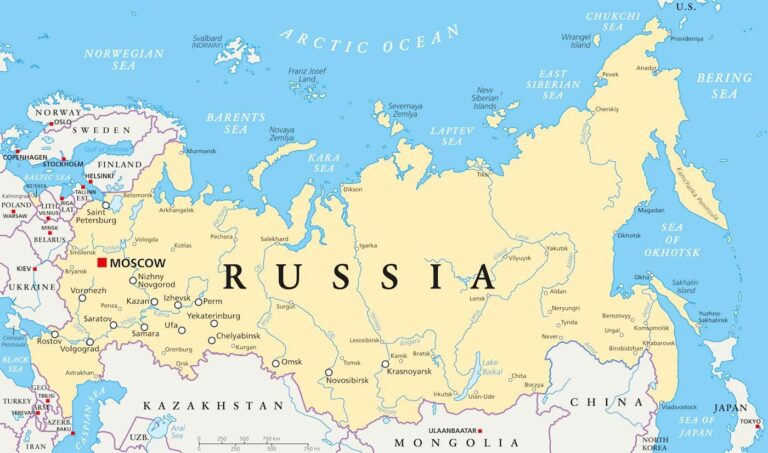Russia has announced its intention to formally withdraw from a landmark U.S.-Russia plutonium disposal agreement, marking a significant development in arms control efforts between the two nations. The move, confirmed by Russian officials, signals escalating tensions and raises concerns about the future of nuclear disarmament and nonproliferation initiatives. This decision comes amid a broader backdrop of strained bilateral relations and global security uncertainties, prompting experts to reassess the stability of longstanding agreements designed to reduce the threat of nuclear arsenals.
Russia Initiates Formal Withdrawal from Key U.S. Plutonium Disposal Agreement
Russia’s decision signals a significant shift in global nuclear non-proliferation efforts. After years of collaborative agreements with the United States, Moscow has begun the formal process to exit the pivotal plutonium disposal treaty, a pact designed to reduce the risks associated with weapons-grade material. This move raises questions about the future of bilateral arms control, as both nations have historically worked to maintain strategic stability through mutual disarmament measures.
Key implications of this withdrawal include:
- Potential delays in dismantling surplus plutonium stockpiles
- Heightened geopolitical tension amid deteriorating diplomatic relations
- Increased concerns over the security and monitoring of nuclear materials
| Aspect | U.S. Position | Russia’s Stance |
|---|---|---|
| Compliance | Strict adherence | Stepping back |
| Material Disposal Plans | Ongoing | Indefinite suspension |
| Diplomatic Outlook | Advocates engagement | Reduced cooperation |
Implications for Global Nuclear Security and Arms Control Efforts
The decision by Russia to formally withdraw from the U.S.-Russia plutonium disposal agreement represents a significant setback for international nuclear security frameworks. This pact, which aimed to mutually reduce weapons-grade plutonium stockpiles through verified disposal, served as a cornerstone in reducing the global threat of nuclear proliferation. Without this collaborative mechanism, there is heightened concern over the potential increase in unsecured fissile material, which could be diverted by non-state actors or contribute to an arms buildup amid renewed geopolitical tensions.
Key consequences of this move include:
- Reduced transparency: Limits on joint verification measures raise doubts about both countries’ plutonium stockpiles.
- Arms race risks: Potential acceleration of nuclear modernization programs as trust diminishes.
- Weakened arms control architecture: Sets a precedent that may discourage future disarmament initiatives.
| Aspect | Potential Impact | Stakeholders Affected |
|---|---|---|
| Verification Measures | Reduced inspections and data sharing | U.S., Russia, International Atomic Energy Agency |
| Plutonium Stockpile | Uncertain disposal timelines | Global non-proliferation community |
| Diplomatic Relations | Increased mistrust and friction | Global security alliances |
Strategies for Diplomatic Engagement to Prevent Escalation and Ensure Compliance
In light of Russia’s decision to exit the plutonium disposal pact with the U.S., diplomatic channels must be leveraged effectively to halt further deterioration in bilateral relations. Transparent communication, backed by consistent engagement through established forums such as the Strategic Arms Reduction Talks (START) and bilateral security summits, will be critical. These platforms provide opportunities for setting clear expectations and reinforcing mutual commitment to nuclear non-proliferation norms. Additionally, engaging third-party mediators like the International Atomic Energy Agency (IAEA) can help bridge trust gaps and introduce impartial verification mechanisms.
To ensure compliance and reduce the risk of escalation, it is essential to deploy a multi-tiered diplomatic strategy that includes:
- Regular Confidence-Building Measures: Sharing information on nuclear stockpiles and disposal schedules to avoid misunderstandings.
- Incremental Sanctions Relief: Offering phased economic incentives in exchange for verifiable progress on treaty obligations.
- Persistent Backchannel Negotiations: Maintaining discreet dialogue to manage sensitive issues away from public pressures.
- Engagement with Allied Powers: Coordinating responses with NATO and regional players to present a unified stance.
| Diplomatic Approach | Purpose | Expected Outcome | |||
|---|---|---|---|---|---|
| Transparency Initiatives | Prevent misunderstandings and build trust | Reduced tensions and clarity on commitments | |||
| Third-Party Verification | Independent monitoring of compliance |
| Diplomatic Approach |
Purpose |
Expected Outcome |
|
| Transparency Initiatives | Prevent misunderstandings and build trust | Reduced tensions and clarity on commitments | |||
| Third-Party Verification | Independent monitoring of compliance | Enhanced credibility and assurance of adherence | |||
| Incremental Sanctions Relief | Encourage gradual treaty adherence through incentives | Positive reinforcement leading to compliance | |||
| Persistent Backchannel Negotiations | Manage sensitive discussions discreetly | Resolution of critical issues without public pressure | |||
| Engagement with Allied Powers | Coordinate unified diplomatic and security response | Key Takeaways
As Russia moves to formally exit the landmark U.S. plutonium disposal pact, the future of bilateral nuclear security cooperation hangs in the balance. This development marks a significant shift in the post-Cold War arms control landscape, raising concerns about the management of surplus nuclear materials and the potential implications for global nonproliferation efforts. Both Washington and Moscow now face mounting pressure to navigate these challenges amid broader geopolitical tensions. The international community will be closely watching how this unraveling pact influences the trajectory of nuclear diplomacy in the years ahead. |




